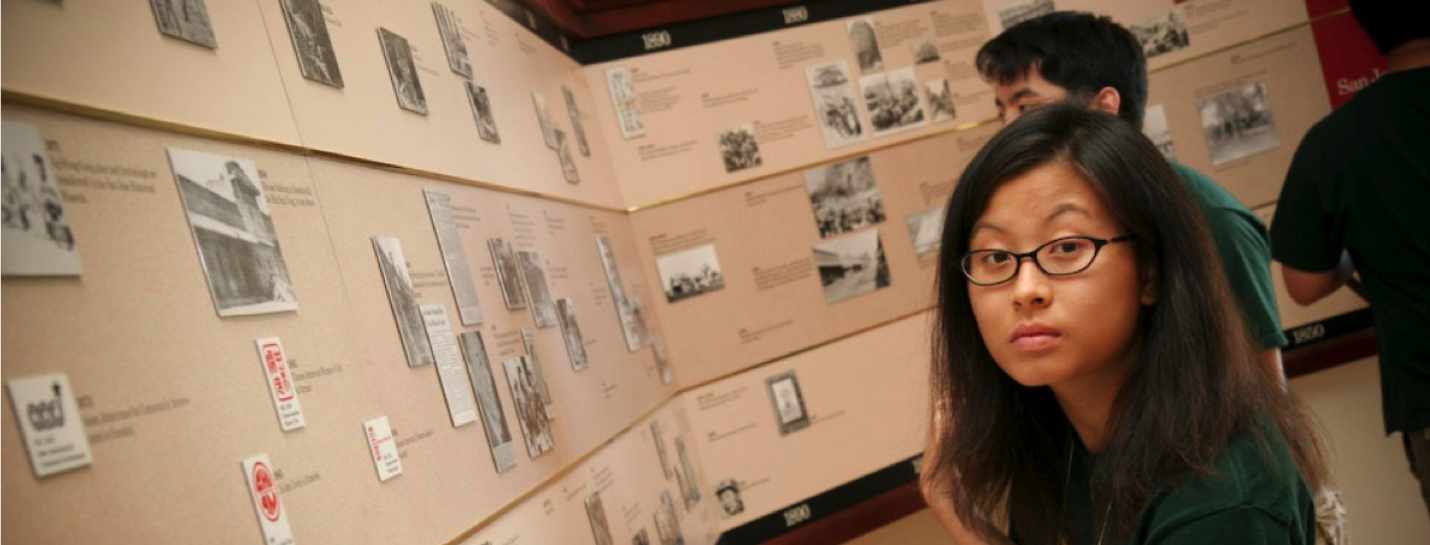What Our Students Have to Say ...
About Asian American and Asian Studies at De Anza
-
An
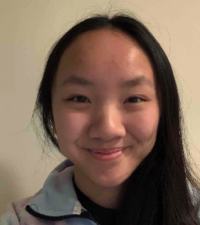
An Nguyen
Took Asian American Studies as a Liberal Arts major
- A.A., Liberal Arts with emphasis in Social & Behavioral Science, De Anza College, 2020.
- B.A., Psychology with a minor in Sociology, University of California, Davis, 2022.
While at De Anza, I Took:
- Contemporary Asian American Communities (ICS 22, now ASAM 10)
My educational goal is to learn about how people function in different, overlapping contexts with respect to culture, socioeconomic status, race, place of residence and other factors. I want to use that knowledge to challenge myself to analyze societal issues critically, and to seek answers to individual as well as societal issues.
Why I Took Asian American Studies
My motivation for taking Asian American Studies stemmed from a desire to “fill in the gaps,” in a sense. In other classes I’ve taken, Asian American history was usually rushed if not completely ignored. I called myself Asian American, but I barely even knew what that entailed. I knew that Asians had been discriminated against in the past, but I didn’t know how those injustices impact our experiences today. The information felt important to have, especially in context of the modern-day fight against institutionalized racism.
How Asian American Studies Changed Me
Taking Asian American Studies has opened my eyes to the fact that Asian Americans’ history and present-day experiences are much more interesting and complex than they seem to be. I feel like I understand Asian American issues – like the affirmative action debate and the model minority myth – in more depth, because I’m able to consider history and apply that context to analyze the present. This has motivated me to learn more about Asian American activism and communities, and to think critically about my identity as an Asian American.
What I Value about Asian American Studies
I think the most valuable thing in taking Asian American studies is learning that there is much more to the history and experiences of Asian Americans than America wants to show. I think it’s empowering to learn about information that’s been glossed over in favor of pushing the “model minority” myth. Becoming aware of the injustices we face, and learning about the fight against such injustices, makes me want to contribute as well.
-
Manny
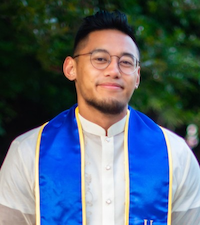
Manny De Leon
Transferred to UC Irvine to major in Asian American Studies
- A.A.T, Political Science, De Anza College, 2017
- A.A., Liberal Arts with emphasis in Business and Computer Science, De Anza College, 2017
- B.A., Asian American Studies, University of California, Irvine, 2019
- M.A. Candidate in Asian American Studies, University of California, Irvine, 2020.
While at De Anza, I Took:
- Asian American Experiences: Past to Present (ICS 20, now ASAM 1)
- Introduction to Pacific Islander History and Culture (ICS 21, now NAIS 31)
- Contemporary Asian American Communities (ICS 22/APALI, now ASAM 10)
- Asian Pacific American Literature (ICS/ELIT 24, now ASAM 24)
- Civic Leadership for Community Empowerment (ICS 55/APALI)
Through Asian American Studies at De Anza, I also took part in the Asian Pacific American Leadership Institute (APALI). I participated in the Summer Youth Leadership Academy, the Summer College Internship Program and the Civic Leadership Program.
What I Loved
The community that I was able to develop from these classes is what I found to be most valuable. The support from peers gave me a family that I didn't expect. It was affirming to have this support, and validated my decision to pursue Asian American Studies as my path.
How Asian American Studies Changed Me
Taking Asian American Studies at De Anza is actually what got me into the field of Asian American studies.
I initially entered De Anza as a computer science major, but decided to switch to Intercultural Studies after I realized my passion for Asian American Studies.
The Asian American Studies classes I took were foundational to my path into academia and were formative to my own individual growth. The initial conversations I had with my mentors and colleagues piqued my interest and drew me in. The professors and mentors who nurtured my emerging passion for the field of Asian American Studies pushed me to where I am now.
If it weren't for the Asian American Studies classes at De Anza, I'd be a completely different person from who I am today.
-
Annie
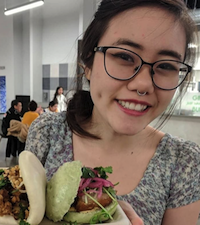
Annie Do
Plans include graduate school, teaching Asian American Studies
- A.A., Liberal Arts and Social Science, De Anza College, 2017
- B.A., Sociocultural Anthropology, University of California, Davis, 2019.
While At De Anza, I Took:
- Contemporary Asian American Communities (ICS 22/APALI)
- Civic Leadership for Community Involvement (ICS 55/APALI)
My long-term educational goal is to earn a doctorate in Cultural Anthropology. I want to highlight and share the stories of the Vietnamese American community – specifically, the Catholic refugees that came into the U.S in the 1980s and '90s. Afterwards, I plan to teach. I want to return to De Anza and work in a space that communally built me. I want to teach Ethnic Studies, Asian American studies or Anthropology. While I teach, I want to continue my own personal work by writing more academic research books about my communities – Asian Americans within punk!
How Asian American Studies Affected Me
Asian American studies provided me the academic safe space to help me to understand how war trauma, institutions, culture and migration play a huge role in my ancestry, my family and myself – my values, what I stand for, my positionality within my interpersonal relationships and my society. It allowed me to feel academia was a space for me, because Asian American Studies helped me understand that this field of study cared about me, my identity and my struggles. The best part was that I was healing communally, alongside passionate, hardworking peers.
What I Value about Asian American Studies
Learning to love myself and understanding myself was one of the most valuable things I learned from Asian American Studies. Asian American Studies helped rekindle my relationship with myself. If you can’t unlearn blaming and shaming yourself, how can you do the same for others? How you treat yourself will always be the foundation for how you treat people who reflect you – the undesired parts of you that you struggle to love.
-
Ben
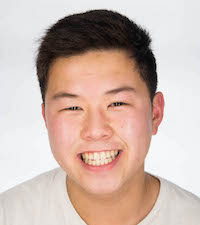
Ben Vo
Transferred to UC Berkeley to major in Asian American Studies
- A.A., Liberal Arts with emphasis in General Studies & Humanities, De Anza College, 2019
- B.A., Asian American and Asian Diaspora Studies, University of California, Berkeley, 2021
While at De Anza, I Took:
- Race, Ethnicity, and Inequality (ICS 4, now CETH 10)
- Asian American Experiences: Past to Present (ICS 20, now ASAM 1)
- Contemporary Asian American Communities (ICS 22/APALI, now ASAM 10)
- Asian Pacific American Literature (ICS/ELIT 24, now ASAM 24)
- Grassroots Democracy: Leadership and Power (ICS 27)
- Civic Engagement for Community Empowerment (ICS 55/APALI)
My first quarter at De Anza, I participated in the Youth Leadership Academy with the Asian Pacific American Leadership Institute (APALI). It was there that I learned more about Asian American Studies as a major and gained a way to think about the world.
I also participated in the Summer College Internship Program and the Civic Leadership Program organized by APALI.
How Asian American Studies Changed Me
Asian American Studies classes helped me situate and contextualize my experiences growing up as a second-generation Vietnamese American in San Jose, the city with the largest population of Vietnamese Americans in the United States, as well as reconcile an existence marked by war, loss, and silence.
Growing up Vietnamese-American in San Jose, I always felt like I had my identity locked down. I hung out with friends who looked like me and spoke our parents' native tongue at home. I never had any culturally awkward "lunch box" moments (because I qualified for free lunch). And more often than not, I was in the presence of other Vietnamese and Southeast Asian Americans growing up.
However, the lessons and curriculum of school weren't representative of my own lived experiences nor the stories that my parents told me at home.
I didn't know it then, but the few times when education reflected my life and the realities I saw around me, I found myself wanting more than ever to discover and learn for learning's sake. These moments of self-realization started my journey to look for the tools to better understand the world around me.
Asian American Studies was that tool. Asian American Studies made me aware of the larger, systematic forces that shaped my world. Asian American Studies helped push me to critically interrogate the disturbing disparities in my community, which I had experienced as a first-generation, low-income college student.
When I entered De Anza I had heavily internalized the stigma of community college. I felt ashamed. I felt so, so obligated to explain my life decisions to anyone who asked where I went to college. During my time at De Anza, I came to realize that the dominant narrative of community colleges is wholly based on an elitist and ultimately classist understanding of the world. Now, I am a proud alum of a community college.
As a student at a large public university like Cal, it's becoming more important to me to remember the places and spaces that I come from and the people who I've come to know and love.
-
Mariam
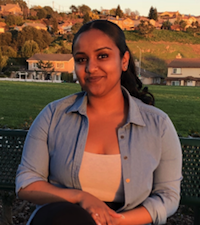
Mariamawit (Mariam) Giday
Took online Asian American Studies classes at De Anza
- B.A., African American Studies, University of California, Berkeley, 2020
While at UC Berkeley, I Took Online Classes at De Anza:
- Asian American Experiences: Past to Present (ICS 20, now ASAM 1)
- Contemporary Asian American Communities (ICS 22, now ASAM 10)
Why I Took Asian American Studies at De Anza
While I am a full-time student at UC Berkeley, I also have a full-time job and a part-time job. De Anza has been a big blessing to me in that I have been able to take online courses that meet my degree requirements and still allow me to work.
I am an Ethiopian immigrant and came to the United States as a child with my parents. When I was growing up, my parents always made sure that my siblings and I were able to understand that there are many cultures, ideas and people that exist beyond our household. I have always had a deep passion for advocacy and for people. I have always wanted to learn as much as possible about other beliefs, cultures and ways of life. I find that doing this not only betters your lived experience – because you get to see so many beautiful realities and meet so many wonderful individuals – but it makes you a better, more tolerant and socially-active individual as well.
I actively chose to take Asian American Studies classes because I realized I truthfully did not know very much about Asian American history. In fact, all of what I knew about this community was from my African American studies courses, and a few documentaries I have watched. Most of this information pertained to how the Asian American community intermingled with African Americans.
What I Value about Asian American Studies
Taking Asian American Studies has definitely made the experiences of the Asian American community so clear and even relatable. I have been able to interact with many wonderful and powerful pieces of material as well as have discussions with some amazing classmates both of Asian descent and non-Asian descent. I am very glad I have taken these courses and have been able to learn so much in such a brief amount of time. I am extremely grateful that my classmates have shared their experiences with me and that I have been able to enjoy the materials we were provided.
Honesty, knowledge and compassion are extremely powerful tools. If everyone were able to practice being honest, genuinely caring about others and actively pursuing knowledge, this world would truly be a far better place. Taking Asian American Studies classes and other Ethnic Studies courses, speaking with classmates, and experiencing new things have truly broadened my horizons.

